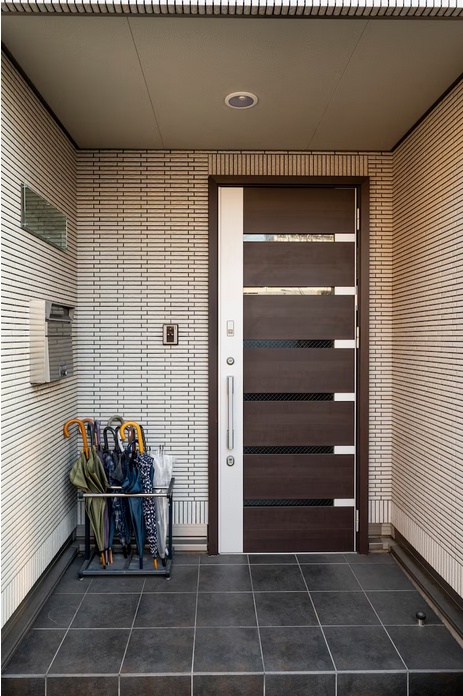Introduction:
In our fast-paced and noisy world, finding peace and quiet at home or in the workplace can be a challenge. Soundproof doors offer a practical solution to create a serene environment by minimizing external noise intrusion and enhancing privacy. In this comprehensive guide, we will explore the concept of soundproof doors, their construction, benefits, applications, and how they can significantly improve the quality of living and working spaces.
1. Understanding Soundproof Doors: Soundproof doors, also known as acoustic doors, are specifically designed to reduce sound transmission between rooms or from the outside environment. Unlike standard doors, soundproof doors are engineered with multiple layers of dense and insulating materials to block, dampen, or absorb sound waves. These doors are indispensable in spaces where noise control is paramount, such as recording studios, home theaters, offices, hotels, and residential bedrooms.
2. How Soundproof Doors Work: The effectiveness of soundproof doors lies in their construction. The core of these doors is often made of dense materials like solid wood, metal, or composite materials. Sandwiched between these dense layers are sound-absorbing materials like foam, mineral wool, or acoustic fiberglass. The combination of mass and absorption properties helps prevent sound from passing through the door, creating a barrier against noise intrusion.
3. STC Ratings and Sound Insulation: Sound Transmission Class (STC) rating is used to measure the sound insulation performance of doors and other building elements. The higher the STC rating, the better the door is at blocking sound. For example, a standard interior door may have an STC rating of around 20-25, while a high-quality soundproof door can have an STC rating of 40 or higher, significantly reducing noise transmission.
4. Benefits of Soundproof Doors: 4.1. Noise Reduction: The primary benefit of soundproof doors is their ability to reduce unwanted noise, both from external sources and within the building itself. This can lead to a quieter and more peaceful environment, conducive to relaxation, concentration, and better sleep.
4.2. Privacy: In environments like offices or conference rooms, soundproof doors ensure that confidential discussions and meetings remain private, free from eavesdropping and distractions.
4.3. Improved Acoustics: Soundproof doors also contribute to better room acoustics by controlling sound reflections and echoes, leading to clearer communication and enhanced audio experiences in places like theaters and recording studios.
4.4. Energy Efficiency: The dense and insulating materials used in soundproof doors also provide thermal insulation, contributing to energy efficiency by minimizing heat transfer between rooms.
4.5. Increased Property Value: The installation of soundproof doors can enhance the value of a property, as potential buyers or renters appreciate the added benefits of a quieter and more comfortable living or working space.
5. Applications of Soundproof Doors: 5.1. Residential Spaces: Soundproof doors are commonly used in bedrooms, home theaters, and home offices to create a peaceful environment shielded from external noises.
5.2. Commercial Spaces: Offices, meeting rooms, conference halls, and hotels utilize soundproof doors to maintain confidentiality and ensure a productive and quiet atmosphere.
5.3. Entertainment Venues: Recording studios, concert halls, cinemas, and theaters rely on soundproof doors to achieve optimal acoustics and prevent sound leakage.
5.4. Industrial Settings: Factories and manufacturing facilities may use soundproof doors to control noise pollution and maintain a safe and quiet working environment.
6. Choosing the Right Soundproof Door: When selecting a soundproof door, various factors should be considered, including the desired level of sound reduction, the location of the door, the space's purpose, and aesthetic preferences. Additionally, the door's overall build quality and the reputation of the manufacturer are crucial to ensure effective sound insulation.
7. Installation and Maintenance: Proper installation is critical for the soundproof door to perform optimally. It is advisable to seek professional installation services to ensure a snug fit and prevent any gaps that might compromise sound insulation. Regular maintenance, such as checking for damaged seals or gaskets, will help maintain the door's effectiveness over time.
8. Customization Options: Soundproof doors are available in various styles, finishes, and sizes, allowing for seamless integration into different architectural designs. Some manufacturers may offer customization options, enabling customers to tailor the doors to their specific requirements.
Conclusion:
Soundproof doors offer a practical and effective solution to reduce noise transmission and enhance privacy in various settings. With their ability to block, dampen, or absorb sound waves, these doors create a peaceful and serene environment, promoting better focus, relaxation, and productivity. From residential bedrooms to commercial offices and entertainment venues, soundproof doors have proven to be indispensable in creating quieter and more comfortable spaces. As the demand for noise control solutions continues to grow, soundproof doors are set to play a crucial role in improving the quality of living and working environments.


No comments yet